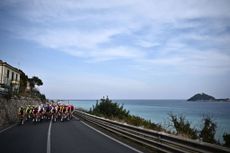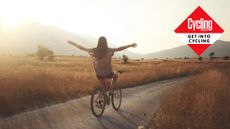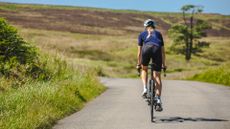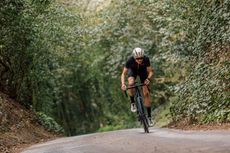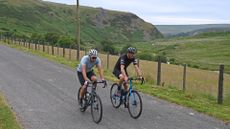How to lose weight cycling: Six essential tips
If you're looking to lose weight cycling, here is a quick guide to reduce that number on the scales to improve your riding
- (opens in new tab)
- (opens in new tab)
- (opens in new tab)
- Sign up to our newsletter Newsletter
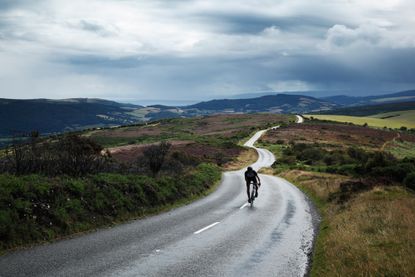
Losing weight through cycling can require a great deal of patience, self-control and it's essential that you make the most of your time. As difficult as it is though, it is very likely that you'll want to lose weight cycling to make those difficult hill climbs a little easier, or to increase your overall efficiency on the bike.
Unless you are already at your optimal racing weight, losing a few extra pounds is the fastest and arguably easiest way to increase your speed, especially if you find yourself climbing up a few hills.
>>> Benefits of cycling: reasons to get on your bike
A few simple techniques both on and off the bike will help everyone, from amateurs to seasoned pros, that is looking to lose a few pounds and see that number on the scales reduced. Eating more regularly but less as well can no doubt help, while how you exercise can really count.
Many riders want to get quicker by being lighter and leaner on the bike, and these handy tips will guide you through how to make that happen.
1. Eat regularly to lose weight
Maintaining a routine of three meals a day will ensure that you snack less frequently, keeping your energy levels high and your stomach full throughout the day.
Completing weekly shops with an organised weekly meal plan will help keep you organised, and less likely to overindulge on whatever you find in the cupboard.
Organisation will also save you time in the long run, keeping you more efficient because you won't waste time popping into the shops every evening for your meal and deciding what you want to eat. As a result, you'll have more time and energy to ride your bike, which is what you ultimately want to do anyway.
2. Eat less to lose weight
This may seem ridiculously obvious, but it is a matter of fact if you want to shift those pounds.
It's obviously easier said-than-done too, but a few tips could make this a reality. Serving smaller portions by filling up smaller plates can give the illusion that you've eaten more, while eating slower also allows you to properly digest your food. It takes several minutes for your brain to realise that it isn't hungry anymore, so taking your time can help achieve this objective.
>>> The hidden motor in your head: How mind training can make you ride faster
Staying on top of your hydration is also essential in remaining full, because dehydration can sometimes be misinterpreted for hunger. If you get hungry during the day, start with a glass of water and wait some time to see if it was dehydration, rather than hunger.
3. Limit high fat and high sugar food and drinks
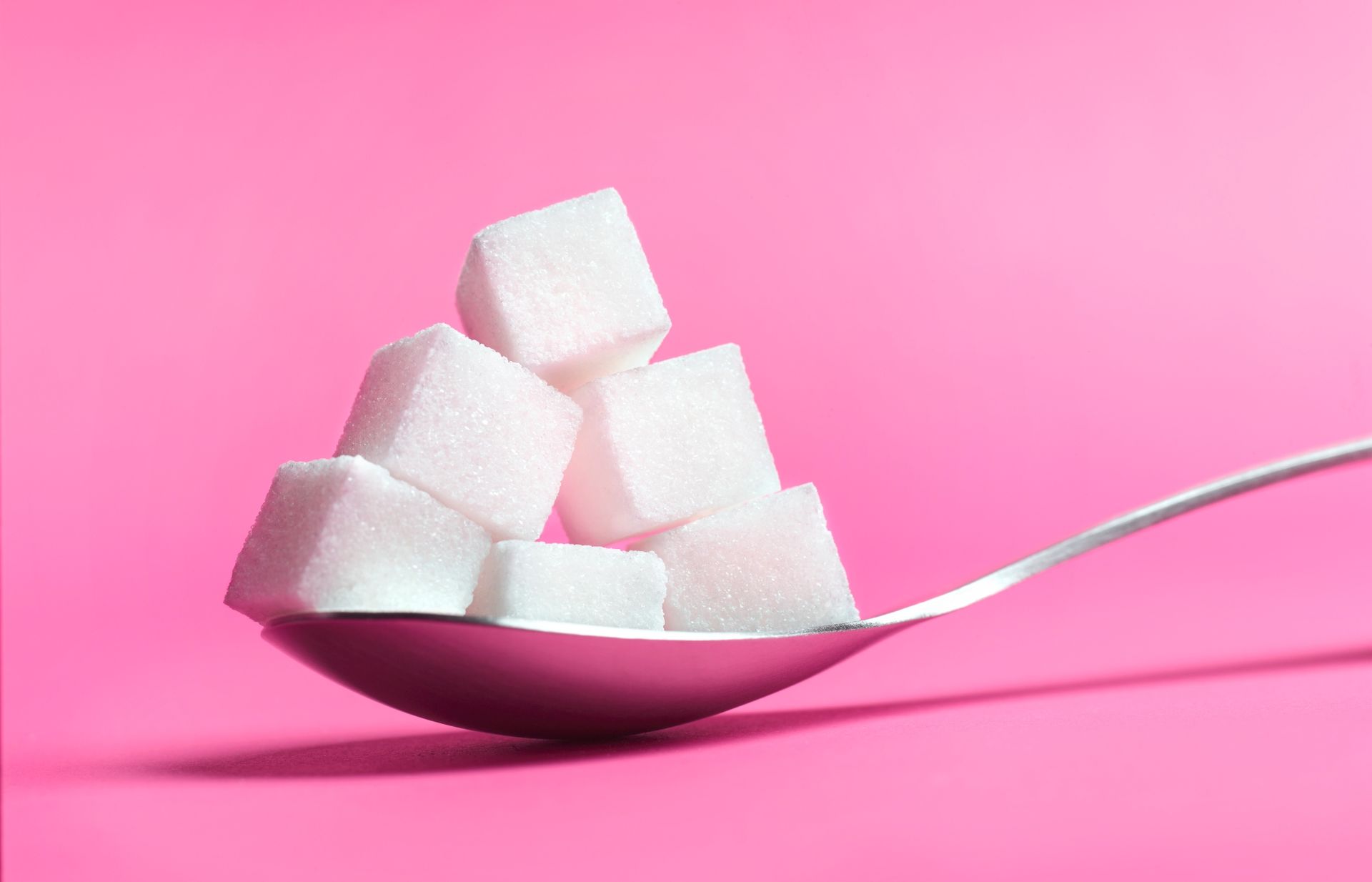
Once again, this might seem like we're stating the obvious. However, sugary foods are likely to be highly calorific, and might not actually provide any substantial satisfaction to your hunger cravings. Additionally, sugar is clearly negative in a nutritional sense.
Natural sugar is fine though, so instead of a mid-morning chocolate bar, try and have a piece of fruit instead. This will help limit artificial sugar that you eat, plus it's healthier anyway.
Recovery drinks can also help to replenish diminished protein and carbohydrate stores after training, so instead of opting for a fizzy drink, try to satisfy your body in a positive way instead. This is because he correct nutrition will help your muscles to recover properly, optimally benefitting your performance.
4. Cut down on alcohol consumption
While it's nice to have a glass of wine or a beer a couple of times a week, alcohol is one of the main factors in contributing to unnecessary weight gain. They are generally highly calorific drinks, which also inhibits our perception of how much we've drunk.
As a result, this can lead to a greater consumption of alcohol, therefore drinking even more unnecessary calories.
Therefore, try to limit your alcohol consumption, if you're looking to lose some weight for your cycling.
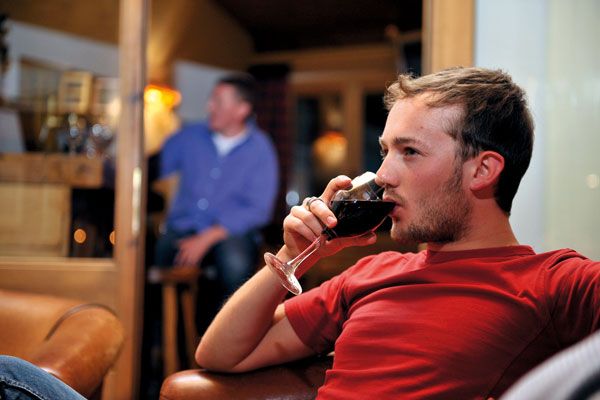
5. Avoid on bike fuelling if it isn’t needed
It may be one of the most appealing things about riding a bike, but when it comes to weight loss it is vital not to over indulge on unnecessary carb consumption unless you really need it.
Rides under an hour don't require anything other than a bottle of water, while only 60-90g of carbohydrates is needed thereafter. Only take the necessary food and drinks that you need out on a ride with you, which will limit the chances you overconsume when it's absolutely not necessary to.
6. Make your commute count
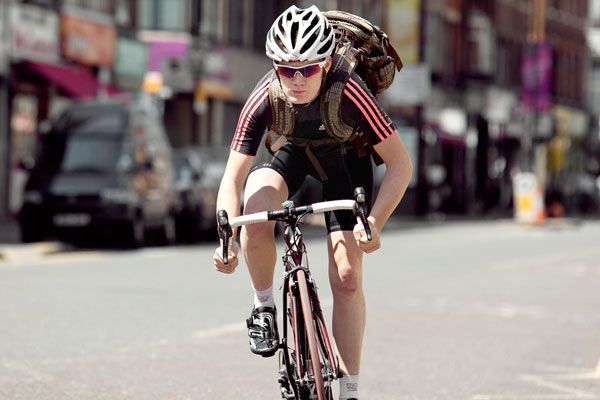
Commuting is often an unavoidable part of day-to-day life, however this everyday routine is the perfect opportunity to boost your weekly mileage.
Whenever you get the chance to hit the road you should make the most of it, because every mile counts. In the summer months heading home a longer way, or on a hillier route, is a great way to rack up even more miles.

Thank you for reading 10 articles this month* Join now for unlimited access
Enjoy your first month for just £1 / $1 / €1
*Read 5 free articles per month without a subscription

Join now for unlimited access
Try first month for just £1 / $1 / €1
Founded in 1891, Cycling Weekly and its team of expert journalists brings cyclists in-depth reviews, extensive coverage of both professional and domestic racing, as well as fitness advice and 'brew a cuppa and put your feet up' features. Cycling Weekly serves its audience across a range of platforms, from good old-fashioned print to online journalism, and video.
-
-
 Milan-San Remo 2023: Route and start list
Milan-San Remo 2023: Route and start listAll you need to know about the first Monument of the 2023 season
By Ryan Dabbs • Published
-
 Summit finish and final day time-trial for 2024 Tour de France finale in Nice
Summit finish and final day time-trial for 2024 Tour de France finale in NiceStage 20 will finish atop the Col de la Couillole before final day race against the clock in Nice
By Tom Thewlis • Published
-
 I learnt how to ride a bike as an adult and you can too
I learnt how to ride a bike as an adult and you can tooLearning how to ride a bike as an adult can feel daunting, but it doesn't have to be
By Hannah Bussey • Published
-
 How to train for your first 100-mile ride: 3 tips and a structured plan for success
How to train for your first 100-mile ride: 3 tips and a structured plan for successCycling coach Zach Nehr explains how to use a structured training plan to prepare for a 100-mile ride
By Zach Nehr • Last updated
-
 Power to weight ratio: watts per kilogram explained and how to boost yours
Power to weight ratio: watts per kilogram explained and how to boost yoursUnless you only ever ride on pancake-flat surfaces, improving your power-to-weight ratio is a must. Andrew Hamilton explains why and how
By Cycling Weekly • Published
-
 Cycling training plans: for beginners, intermediates and racers
Cycling training plans: for beginners, intermediates and racersGet into cycling, get fitter, or ride faster with our cycling training plans
By Anna Marie Abram • Last updated
